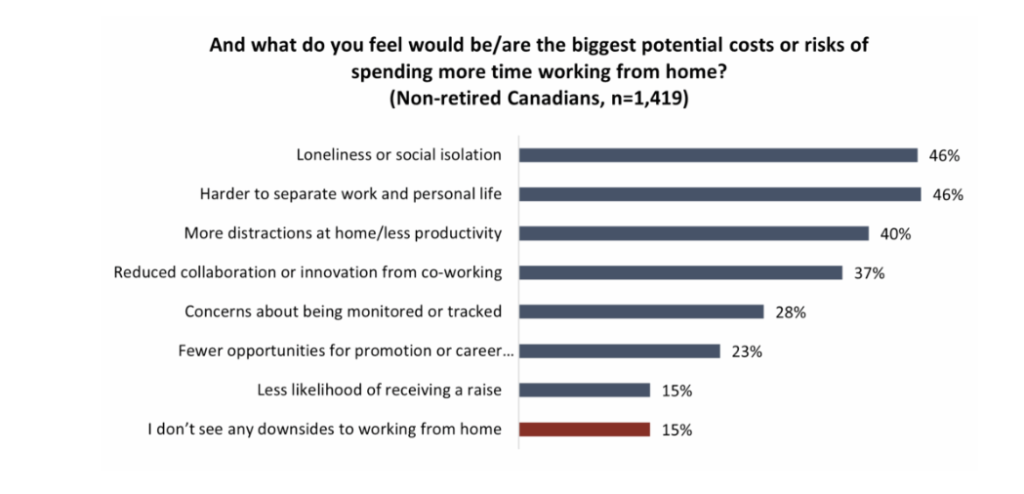|
Getting your Trinity Audio player ready...
|
Nearly 60% of Canadians prefer working from home. The summer 2025 poll results from Angus-Reid shouldn’t come as a surprise, since people enjoy the flexibility, reduced commute time and freedom of remote work.
But preference and performance don’t always line up. Just because someone wants to work from home doesn’t mean it will be a natural fit for them.
Effective remote work requires more than a desire to work away from the office and the technology to do so. It requires self-motivation, effective time management, the ability to maintain focus without direct supervision, and a commitment to collaboration and relationship-building.
For example, an employee who is persistent, dependable and organized would be expected to perform reliably and care about their work. But it is also important to consider whether an employee working from home is able to maintain team-based, collaborative approaches to work despite the lack of physical proximity to their co-workers.
People who perform well remotely are wired to build relationships and collaborate with others. With the right technology and a commitment to communicate and work collaboratively across multiple touchpoints, high-performing remote workers do not operate as distant satellites. Rather, they engage regularly with colleagues to innovate, make collective (and better) decisions and drive projects toward completion. This is one of the reasons introverts may not automatically thrive in remote work environments. While introverts who work from home may enjoy the solitude and lack of disruptions, they must work harder at maintaining the connections that foster teamwork and collaboration.
“People who perform well remotely are wired to build relationships and collaborate with others.”
Finally, it’s important to consider the impact of remote work on employee health and well-being. The Angus Reid poll results reported that loneliness was one of the biggest concerns of workers – and with good reason. A 2024 systematic review of two decades of research found that loneliness at work is associated with higher burnout symptoms, lower job performance and reduced job satisfaction.
Figure 1 Source: Angus Reid: https://angusreid.org/return-to-work-tech-finance/
Evaluating clients’ suitability for remote work
As a career professional, you may have clients or employees asking you about continuing to work from home or seeking a transition to remote work for the first time. First, acknowledge the benefits of remote work including increased flexibility and freedom, fewer interruptions and less time in transit. Then, help them explore whether working from home is a good fit for them (and for the organization) by assessing and examining the key personality traits related to remote work success.
What is their natural approach to work?
- Initiative – Are they willing to take on new or additional work responsibilities and challenges?
- Democratic – Do they prefer to include others and make decisions through consultation and collaboration?
What is their natural approach to connecting with others?
- Teamwork – To what extent to they tend to be co-operative with others, display a good-natured attitude and encourage people to work together?
- Outgoing – How much do they like to interact and establish personal connections with others?
Many Canadians prefer working from home, but remote work isn’t always a good fit. It’s important for people to consider their natural strengths and tendencies and be prepared to flex their style in order to be productive and successful. Career professionals can support individuals who wish to pursue remote work by helping them to recognize gaps and identify skill-building opportunities.






